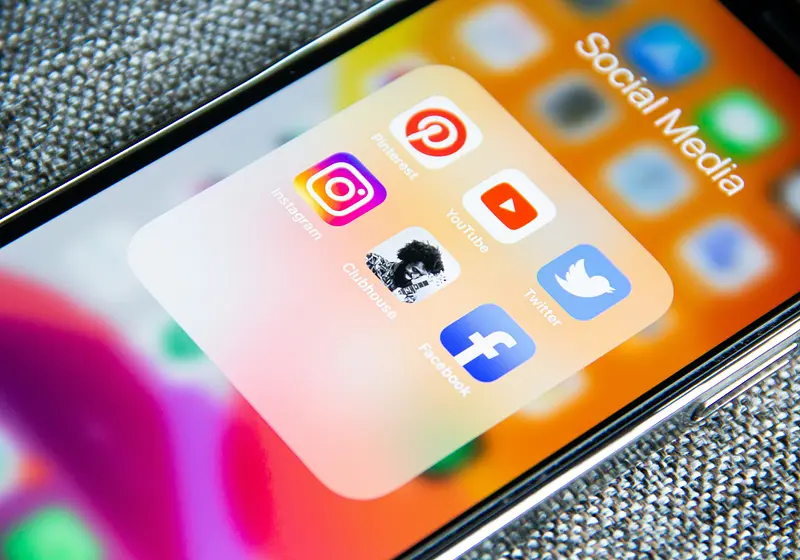Technology and the internet have revolutionized everything we do. Everything is online now; services, products, and your personal information. Who can access the information you post on the internet?
Can you control the use of your data? Can you protect your online data?
The privacy of your data is about having power over your information. Protecting your personal information reduces the chances of identity theft, among other mishaps. Protect your personal information by storing it securely, verifying anyone you give your personal information, and securing your internet-connected devices.
Let us slide into your dms 🥰
Get notified of top trending articles like this one every week! (we won't spam you)What Happens To Your Online Data?
Your information has become more vulnerable and useful than ever before. Hackers want your personal information to steal from you. Legitimate businesses want your data to generate more sales.
Government agencies may also use your personal information. Every time you access a site, you leave a digital footprint without your knowledge or consent. A digital footprint is a trail of everything you do online, from social media posts, comments, shopping, and researching.
Your digital footprint is your uniqueness and can be used to build your profile. Did you know about data brokers?
Data brokers collect your personal information, from public records and your online activity, analyze it, create your profile, then sell it to companies interested in such information, even government agencies. Have you ever noticed that the ads you receive are somewhat related to the things you like or use? Businesses use your personal information (without your knowledge) to create targeted ads. Does the government have anything against this?
The General Data Protection Regulation (GDPR) is a European Union law that was passed in 2016 to give you control on how your personal information is used. It requires that your personal information is collected with your consent and approval, and full disclosure on how the information is used. Every country has a Data Privacy Law like the GDPR to protect online users.
Nonetheless, do not leave it entirely to the government to protect you from intruders. Here are steps you can take to protect your data and identity online.

Take the Quiz: Which Generation Matches Your Personality?
Discover the generation you truly belong to!
Share Your Personal Information With Caution.
Similar to how you don’t just share your social security number with any stranger that demands it physically, don’t let your guard down when the stranger is a website. If a website is asking for your bank account details, what safety measures have they put to protect your data? Don’t shy away from reading the privacy policy.
Ensure that the site enforces end-to-end encryption, data protection compliance, and secure HTTPS connection (the site’s URL begins with HTTPS, rather than HTTP). Activating a two-step authentication adds an extra layer of security. With two-step verification, you need your password and phone number or email address to access your account.
When you log in, the site sends you a one-time PIN, that you use to access your account. That way, even a hacker with your password will still be locked out of your account.
Stay Cautious On Social Media.
The easiest way for anyone to know your story is through your social media account. With your profile, it is even easier for a hacker to access your bank account. Use the following tips to stay safe while networking:
- Only follow people you know — you don’t need a massive following of strangers.
- Do not post your real address, full names, phone number, social security number, account number, or relatives’ names in your social media account.
- Whenever you post personal information like your birthday, limit the viewers to only those you trust.
Consider Using Fake Credentials.
It may sound unethical, but it is good practice. Some sites demand that you give your full names, birthday, address, and answer a personal security question when creating an account. You don’t have to provide the real details, and nobody will punish you for it.
If a hacker accessed your account with such sensitive information, they can use it to access your other accounts to carry out their malicious intentions. Instead, use made-up details that nobody would guess. If you use fake credentials, you will mislead anyone who tries to steal your information.
Be Cautious When Using Public Wi-Fi.
Hackers love public Wi-Fi’s more than you do because of their weak security protocols. Most public Wi-Fi’s are unsecured and information is transferred without encryption, so a hacker with a little knowledge and a tool like Wireshark can sniff information being transferred within the network, meaning anything you do online, from the sites you visit and the information you put in those sites including login credentials. What do you do if you need that free Wi-Fi?
- Use a virtual private network (VPN) when using public Wi-Fi. A VPN secures your connection by encrypting your data. So even when an attacker is sniffing information, all they get is encrypted data that they cannot decode.
- Don’t make online purchases or banking procedures using public Wi-Fi. Stick to browsing without logging into any site.
- Always update your devices to receive the latest security updates.
- Have third-party antivirus software installed on your mobile device and computer.
Good Password Practice.
Besides using a different password for each account, and not using your personal information for passwords, consider the following password best practices;
- Use long, strong, and unique passwords. Longer passwords are harder to guess.
- Put your symbols and capital letters in the middle parts of your passwords. If you put capital letters in front, then the unique password, then numbers at the end, you are doing what most people do; and hackers know what most people do.
- Use a password manager like LastPass or Google Password Manager that generates unique passwords for each site and save the login information securely in your Google Account. You won’t have to remember the passwords; the Password Manager helps with that when you want to log into your account.
- Changing your password every month makes you set weaker passwords as you exhaust your list of possible memorable passwords. Instead, set one strong password and use it for a few months.
- Don’t write down your passwords, and if you do, store them far and secure.
Look Out For Con Artists.
Hackers will try to steal your information through fake websites, phishing emails, phone calls, and messages. An impersonator can send you an email that seems to come from your bank asking you to update your bank details through a provided link. The link will send you to a website that looks like your bank’s website intended to retrieve your login credentials.
As soon as you log in, you give them access to your bank account. Here are tips to protect yourself from impersonators.
- Do not open links, files, or programs sent to your email unless you know and trust the sender.
- Never send a stranger your sensitive information over a phone call, email, or message, no matter what reason they give for requiring the information. If someone emailed you saying they need to transfer some money to your account because they lack the means to access their money, don’t fall for it. They want your bank account details to steal from you. It is ‘The Nigerian Scam’.
- If you receive an email from your bank, go to their official site (through your browser, not the provided link), look for the customer service number, and call them to verify the email.
- Be careful of the sites you visit and the apps you install on your phone. Only install apps from trusted sources like Play Store or App Store or the official vendor’s website. If you visit a site and get a notification that your phone has a hundred viruses that you need to click on a button to remove them, steer away from that site. It is a trap that might install a virus in your device. Exercise extra caution when visiting adult sites. Hackers target adult sites because they have massive traffic. Hackers insert malware in banners and ads. Avoid clicking luring ads on a adult site and ensure your device has an antivirus program.
Safely Dispose Of Your Data.
Before discarding your phone or laptop, format it to factory settings to delete your personal information. Activate remote wiping on your phone that allows you to remotely delete your information from your phone in case of theft. When you no longer use an online shop, deactivate or delete your account. Delete your accounts from websites that you no longer use.
Can You Permanently Delete Your Information On The Internet?
It is not possible to delete all your personal information permanently from the internet. However, there are means you can use to reduce your digital footprint.
- The first thing you need to do is search your name on your browser. If you find your profile on people search sites like Spokeo, and Whitepages, you can opt-out through the sites.
- Opt-out of data brokers accounts like infoUSA.
- Delete old social media posts.
- Delete information from Google through the Activity Controls on your Google Account.
- Set your browser to delete cache after every session.
- Use browser extensions that manage your privacy like HTTPS Everywhere.
- Delete old email accounts.
- Delete applications that you no longer use, and manage the permissions for the apps you still use, to regulate their access to your personal information.
- Turn off your device’s location setting, and Bluetooth when you are not using these services.











